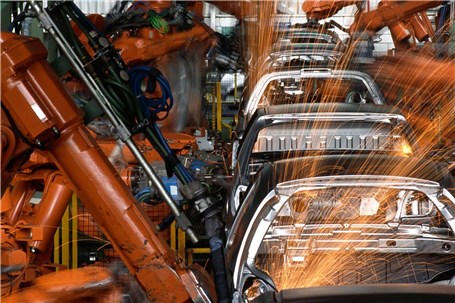Encouraging foreign investment to revitalize Iran’s car industry - expert
Asre Khodro: Iran’s biggest non-oil sector car industry looks like slipping into recession recently. The situation got even worse with the disagreement between auto-parts makers and carmakers of the country.
Tuesday 21 June 2016 - 16:08:00
Reporting "Asre Khodro", The problem is that car producers prefer low quality imported auto parts from China. Nevertheless, domestic producers of auto parts would be in a better position if the exchange rates were market determined and safety standards were rigorously applied to domestically produced cars, said Kamran Dadkhah, associate professor of Economics at the Northeastern University via email to Azernews on June 19.
The outstanding debts of the Iranian carmakers to auto-parts makers are also believed to be among the main reasons for the disagreements between the two main sectors of the country's automotive industry.
Iran’s car industry had very limited opportunity to work with foreign companies and lacked investments due to sanctions imposed on Iran during past years. Some auto-parts makers imported auto-parts from China and India and sold those products to carmakers under their own brands, which was disclosed by the automakers later.
In order to revitalize Iran’s car industry, Dadkhah believes that the first step is to encourage and facilitate foreign investment in Iran auto industry.
“It seems that Iran has already taken steps in this direction. The French auto manufacturer Citroen has bought 50% of Iran Saipa of Kashan. There are talks that Volkswagen and Mercedes Benz of Germany are also interested in joint ventures with Iran. Such investments will bring both the needed investment and the modern technology to Iran’s car industry", said the expert.
Dadkhah further noted that in addition, Iran has to have a free market for foreign currencies where the exchange rates are determined by supply and demand.
Through enforcing safety regulations, the government could improve the quality of domestic products. Needless to say, prerequisites for the success of such policies are true privatization and reliance on market forces, he added.
Dadkhah reminded that auto industry is the second largest industry (after oil) in Iran, which dates back to the 1960s. The first car was produced in Iran in 1967.
At the beginning, the industry was engaged in assembling auto parts imported from England, he said, adding that as time passed more and more parts were produced domestically.
After the revolution the auto industry was nationalized, and the government assumed a much greater role in the economy, Dadkhah said by emphasizing that in particular, the foreign exchange rates were kept artificially low.
This meant that imported products would cost less while Iran’s exports would cost more. To counter this, tariffs and customs duties were increased. As a result, there were no incentives for innovation or the use of modern technologies, said the expert.
Dadkhah said that innovation and improvement of quality in Iran’s auto industry came to a halt as low quality parts which imported from China further hampered the development and improvement of quality in auto parts industries.
In the past twenty years the only exception has been the joint investment of the French company Renault with an Iranian auto company that has led to the introduction of modern improved technology in the production of an Iranian automobile named Tondar, said the professor by highlighting that in general, domestic autos were bought by low and average income people because they could not afford foreign cars. While the rich who could afford them and get exemptions from paying import duties were buying high quality imported cars.
Dadkhah noted that the auto industry has survived because of extensive demand. Other industries haven’t been as lucky.
Recently Arj, a producer of appliances and other products went bankrupt and closed shop. It should be noted that Arj was the first producer of appliances in Iran, he added.
The expert also underlined that there is no ban on importing cars from the United States based on the statements made by the Ministry of Industry, Mines, and Trade.
Needless to say, imports require permission and sometimes they are denied, he added by stressing that many rich Iranians are displaying their expensive American and European cars in the streets of Iran.
Overall, any selective interference in the market (unless it is based on safety issues) would damage the economy and the industry, emphasized the expert.
The automobile industry accounts for nearly 10 percent of Iran’s gross domestic product.
In April, Iran’s Industry, Mines and Trade Ministry has obliged foreign carmakers to allocate a 20-percent share for Iranian-made car parts if they want to operate in the country's market.
The ministry has also obliged the Iranian car makers to purchase 40 percent of the parts used in car production from the domestic market.
Today, only 15-20 percent of car parts cannot be produced in Iran which is due to the fact that launching their production lines is not economically beneficial. These parts mostly include electronic car parts.
The government sees fully privatization of the car industry as a tool to improve this field.
Officials believe privatization is a key strategy for the rehabilitation of the Iranian economy and will facilitate upgrading the Iranian car industry, as well as, its growth.
Source: azernews.az

